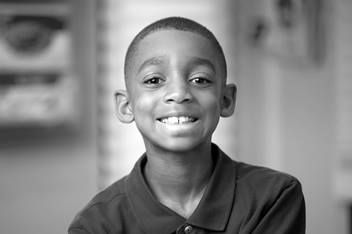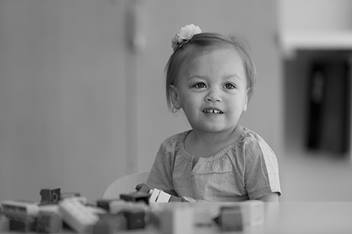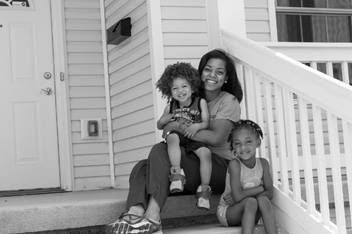Better Health Outcomes With School-Based Reproductive Health Education Programs
Infant mortality is significantly higher when the mothers are teenagers, and teen pregnancy and motherhood can have a huge impact on education, housing stability, employment and many other social determinants of health.
So for the last several years, Nationwide Children’s Hospital, along with CelebrateOne and other community partners, has provided reproductive health education to middle school students at Columbus City Schools. These efforts, combined with Nationwide Children’s school-based health clinics, not only improve health directly, but also empower students to make healthier decisions.
Now, a $2.8 million federal grant is helping Nationwide Children’s expand its efforts throughout Columbus City Schools, with an ultimate goal of reaching as many as 7,000 seventh and eighth graders.
“It's teaching them very basic life skills like how to evaluate problems and situations in a healthy way, how to communicate with others, or just how to find a clinic and get help,” says Sarah Saxbe, Project Manager for Teen Health Education in the Nationwide Children’s School-Based Health Program.
Nationwide Children’s work in reproductive health education began with its ongoing efforts to reduce the infant mortality rate.
“We knew that some of the schools in Franklin County and Columbus had high teen pregnancy rates,” says Saxbe. “We were looking for ways to connect with students, teachers and administrators to provide preventative services, such as pregnancy and sexually transmitted infection prevention education.”
Nationwide Children’s chose a curriculum called Get Real, an evidence-based, comprehensive, reproductive health and teen pregnancy prevention curriculum that emphasizes social and emotional skills as a key component of healthy relationships and responsible decision making.
Get Real was launched in 2020, beginning in seven Columbus schools and expanding to 19 schools in January of 2021. In July 2020, the Office of Population Affairs at the U.S. Department of Health and Human Services awarded Nationwide Children’s a three-year, $2.8 million grant enabling the growth of the program by:
- Expanding Get Real from seven to 12 Columbus City middle schools.
- Extending clinical access through school-based health center and mobile care center expansion. These clinics provide students with sexual health care services like birth control and STI testing in addition to general health care needs like vaccinations, check-ups, sports physicals, and asthma and diabetes management.
- Launching AwkTalk, a website designed for younger teens who need information on sexual and reproductive health, but whose parents might assume they're too young for those conversations. Parents can access the support, assistance and resources they need to talk to their child about difficult topics through a designated portal. Resources include ten video modules with learning activities to foster real-life conversations, and a series of two-minute video vignettes modeling healthy parent-child conversations on difficult topics, such as when a child identifying as LGTBQ comes out to their parents.
- Creating the Health Peer Leader Program, which supplements Get Real by recruiting 12 students from six Columbus middle schools for in-depth training on topics they've learned in the curriculum. The students are then encouraged to speak to their friends and family about topics like healthy relationship and communication skills, boundaries or consent.
- Launching the YES! (Youth Empowerment Skills) summer educational program, another supplemental program that has engaged a total of 55 kids across Columbus from ages 14 through 18. Students were treated like paid interns over the course of eight weeks, participating via Zoom six hours a day, three days a week. Classes covered issues on reproductive health, but also topics like workforce development, interviewing skills and financial literacy.
While Nationwide Children’s is still gathering data on the results of these programs, the initial response from both students and parents has been overwhelmingly positive.
Over the next two years, the federal grant funding will continue to enable Nationwide Children’s to expand Get Real and its supplemental programs throughout Columbus City Schools, broadening the curriculum’s reach and impacting an approximate total of 7,000 seventh and eighth grade students.

“When you empower kids at a young age, you’re teaching them that they have the power to make better decisions for themselves later down the line.”



